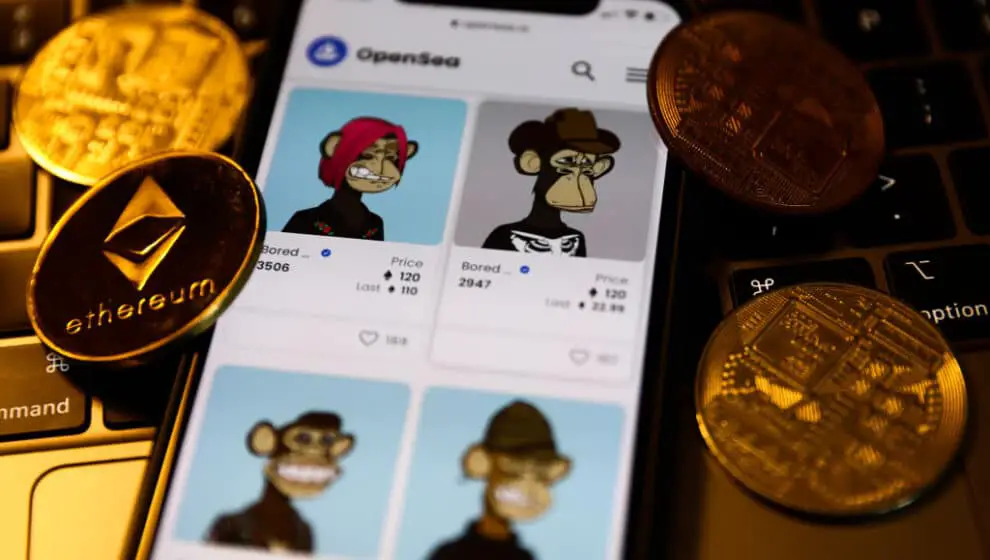Crypto marketplaces are beginning to pull back from royalty requirements as NFT markets dry up.
Key Details
- The NFT market exploded and crashed in the first half of 2021, marking one of the most significant moments in the history of cryptocurrency as speculation on digital assets brought in multiple multi-thousand dollar sales of digital images.
- NFTs—Non-Fungible Tokens—are small files that can be minted, traded, purchased, and sold through crypto marketplaces, often containing small works of collectible digital artwork. Many marketplaces allow the original creators to draw passive income from royalties of the repeated sale of the asset.
- As Axios reports, marketplaces are rolling back royalty payments and making them functionally voluntary, reflecting a marketplace facing declining prices and demand. Reuters notes NFT sales are 99% down and creators are seeking corners to cut.
Why It’s Important
The “Crypto Winter” continues at pace, with major cryptocurrency markets chilling and stablecoins facing lower valuations. As The Art Newspaper notes, this is creating a pinch for crypto investors struggling with lower sales and revenue, particularly in the aftermath of the collapse of FTX in November. Curbing royalties on NFT artists only serves to squeeze profit out of the remaining marketplace, further disincentivizing the minting of new NFTs.
“The motivation is clear: traders want larger profit margins on NFT resales, and platforms want to retain and reward traders who buy in bulk, a practice that compounds fees at a steeper rate than one-off purchases. This progression has prompted investors to speculate as to whether the NFT bubble is finally ready to burst,” says The Art Newspaper.
Axios notes a significant exception to this trend is OpenSea, which has embedded royalties into the code of its smart contracts against the general direction of the market. It even prevents NFTs from being sold on rival marketplaces that don’t honor royalties, a decision that may alienate potential buyers but protects artists’ royalties.
“We believe creators should have the power to build the collections and communities that they desire, and buyers and sellers should continue to have the freedom to choose which collections they do and don’t engage with,” says OpenSea CEO Devin Finzer.

